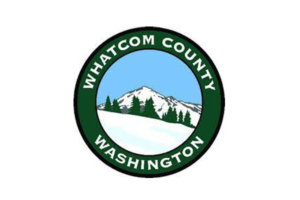“Let thy food be medicine and medicine be thy food,” reads the famous Hippocrates quote that opens many forays into the topic. Imagine a world where nutritious food can combat illness and drug dependency. While the food-as-medicine movement has been around for decades, its prevalence in modern medicine is once again appearing in headlines, with a growing interest in the role of functional foods.
Last year, the 2018 Federal Farm Bill allotted $4 million to the USDA to distribute for prescription produce programs, as physicians and medical institutions make food a formal part of treatment, rather than relying solely on medications.
As more health providers work to better understand how nutritious food can treat disease and reduce dependence on drugs, the team at New Venture Advisors is encouraged to see our work, and that of the good food movement, increasingly at the intersection of the health care system and the good food system.
An Alternative Form of Medicine
Is food both culprit and healer? As Americans, we are all too familiar with fad diets. They grace the covers of magazines, telling us how to best lose weight. Our obsession with what we eat dates back before my mother’s Snackwell cookies. While concerns with diet are often associated with the fixation of losing weight, we are slowly becoming more aware that what we are eating is affecting our overall health and wellbeing.
Health centers across the country have been writing and filling prescriptions for healthy food in an attempt to address the root causes of diabetes, hypertension, and other costly illnesses. Prescribing fresh produce along with diet recommendations is a way for people to receive nutrients often absent in ultra-processed foods such as protein, fiber, vitamins A, C, D and E, zinc, potassium, phosphorus, magnesium and calcium.
If more nutrient-dense diets improve health, hospitals and insurance companies alike are hoping to show a positive return on investment in the health care industry because healthier eating should lead to a reduction in ER visits, hospital re-admissions, and medications.
Programs offered by two health care organizations and one of New Venture Advisors’ clients are bold experiments that bank on this promise.
A vision for change: case studies from the field
ProMedica’s Hunger as a Health Issue in Toledo, Ohio screens patients for food-insecurity when they are admitted into the hospital. Patients who screen positive receive several days of healthy food at discharge and can return once a month to Market on the Green to restock with food that is selected by experts to positively impact the patient’s health. Market on the Green is a full-service grocery store in a designated food desert that lacks easy access to healthy foods. The store offers nutrition education and is staffed by a job training program.
Fresh Food Farmacy, launched by the Geisinger Health System, empowers participants to manage their medical conditions through food-related behavior and life style changes. Patients participate in nutrition education classes and learn how to prepare healthy meals with fresh produce they receive.
Project Angel Heart prepares meals that meet the medical and dietary needs of those who are critically ill. Meals are then delivered to the patient’s residence which allows them to remain in their home which helps reduce the burden of medical expenses.
A Challenge of Equity
Eating a healthy diet isn’t as easy as taking a pill. For many Americans, healthy foods simply aren’t available. And if they are, they aren’t affordable. Healthier diets — diets rich in fresh produce and lean proteins — generally cost more. Results from a processed-food study found that the unprocessed diet fed to participants cost 40% more than the ultra-processed diet.
Unfortunately, many American families don’t have more money to spend on food. According to the USDA, one out of every eight people does not have enough food to eat and many more do not have enough money to regularly afford healthy foods (USDA, Household Food Security in the United States in 2017). (Learn more about risks associated with food deserts in our Good Food Glossary.)
A study by the British Medical Journal found that the consumption of ultra-processed foods was highest among those with lower income levels and lower levels of education. Because of these disparities, access to fresh food has become a social determinant of health. As a result, the public and philanthropic sectors are making investments to improve long-term health outcomes through strategies to improve access and affordability.
An example is the allowance in the 2018 Farm Bill for food prescriptions based on the results of a pilot in Flint, Michigan. The Hurley Children’s Hospital started prescribing fresh produce to help combat the health risks children were susceptible to because of exposure to lead in the drinking water. This resulted in children increasing their daily intake of vegetables, which before their participation averaged less than one serving a day. There is evidence that if children eat a healthy diet early on, they are less likely to develop a chronic disease as they reach adulthood.
These two organizations — one a New Venture Advisors client — have a long, successful history implementing programs that address health equity by making fresh produce available to those who can least afford it.
A model for change: case studies from the field
Farm Fresh Rhode Island — FFRI is an innovative food hub that operates a traditional aggregation and distribution enterprise. These revenue-generating businesses provide the infrastructure to support a myriad of programs aimed at improving health in the community while also boosting sales for area farmers. They work with the community through outreach, incentives, and educational programs to increase the accessibility and affordability of fresh, local foods.
Sustainable Food Center — SFC’s mission is to cultivate a healthy community by strengthening the local food system and improving access to nutritious, affordable food in Austin, TX. They work to create opportunities for people to make healthy food choices so they are empowered to improve their long-term health outcomes. They connect local farmers with schools, worksites, and neighborhoods to provide fresh produce to individuals and institutions and strengthen the local economy.
New Venture Advisors’ Clients Build Innovative Food Systems
Not only are we observing surprising trends in health care delivery — doctors prescribing fruits and vegetables (supported by federal subsidies), hospitals planting farms, healthcare providers building grocery stores — our work at New Venture Advisors is increasingly being initiated directly and funded by health-related organizations. Their aim is to create food systems that support a healthy diet for all citizens.
Below are just a few of 15 recent projects we have embarked upon with health stakeholders at the head of the planning table.
Health care foundations
The Worcester Regional Food Hub — A collaborative effort between the Regional Environmental Council of Central Massachusetts and the Worcester Regional Chamber of Commerce, the food hub was made possible by the generous support of the Health Foundation of Central Massachusetts. Piloted as a kitchen incubator and aggregation hub in 2016, WRFH envisions a community where all people have access to affordable, local, healthy food, and seeks to enhance the regional economy through improved producer and consumer networks, targeted workforce development programs, and business incubation. New Venture Advisors helped develop a business plan for the hub’s initial growth and is now acting as an advisor for its third year of operation.
Sunflower Foundation: Health Care for Kansans — Access to fresh food in the many rural communities across the state is of chief concern as rural grocery stores continue to close at an alarming rate. Sunflower directs resources toward helping Kansans and Kansas communities achieve and maintain optimal health. Together with the Rural Grocery Initiative at Kansas State and Sunflower, New Venture Advisors assessed the food distribution landscape in Kansas to propose innovative, alternative strategies that will provide critical support to rural grocery stores throughout the state of Kansas.
Community health centers and public health departments
Kokua Kalihi Valley Comprehensive Family Services — A community health center, KKV’s mission is to “work toward healing, reconciliation and the alleviation of suffering in Kalihi Valley through strong relationships that honor culture and foster health and harmony.” The ROOTS Program supports this mission with a variety of programs that provide direct assistance, training, education, and connection through growing, preparing, and sharing food as a community. New Venture Advisors is developing a strategic plan to clarify the operating structure of these diverse and important programs, and to provide a roadmap for the future.
Wood County Health Department — This central Wisconsin community has organized a group of stakeholders representing public health, hunger relief, agriculture, public schools, academia and more to explore the feasibility of a community food center. They see the need to create efficiencies between hunger and health organizations, increase accessibility of local foods to visitors and residents, support local farmers and entrepreneurs, and create an environment that eliminates hunger stigma and enhances workforce skill training and development. New Venture Advisors is helping the health department and its partners in determining a sustainable business model for a community food center that incorporates a hunger relief food pantry and hot meal site, and revenue generation through local food aggregation, processing, and distribution.
Organizations on a mission for health equity
Whatcom Community Foundation — WCF has a bold vision for creating a waterfront campus showcasing Whatcom County’s local food system. The goals for this multi-tenant site are to promote health equity, forge tangible strategic connections between food production organizations, and help farmers connect with institutional markets. Traditional aspects of a local food campus will be combined with affordable housing, a center for employee ownership, office condominiums, and childcare services.
Kane County Food Hub — A health impact assessment showing significant disparities in health within this suburban Chicago community was the impetus for a joint planning effort across the health, planning and transportation departments. Through this collaboration emerged a plan to develop a food hub that would increase access to fresh fruits and vegetables. New Venture Advisors assisted Kane County in identifying a unique business model that ensured the hub’s products reached low-income residents and the institutions that serve these communities. In 2018 the food hub piloted operations with a veggie prescription box program in partnership with Rush-Copley Medical Center.
Good food, we are finding, is doing more than boosting local economies. It is the medicine our bodies need to be nourished and to be healed. With the health industry increasingly present among the pool of stakeholders investing in the good food system, we are more hopeful about the prospects for systemic change in the United States.
It all starts with our clients (and organizations like them). Check out their amazing work on our website.
Image: Lightspring / Shutterstock




So glad to read about how New Venture Advisors is connecting the dots between healthcare and good food access. We at Healthy Bytes are bringing registered dietitians into health plan networks, enabling them to provide nutritional counseling at little to no out-of-pocket cost to the plan members, which then equips those members with the knowledge to make smart food purchasing and dietary decisions. Have you encountered any examples of dietitians playing a particularly strong role in expanding the programs you describe in this post?
Thank you for response. We have seen dieticians play a role similar to your work at Healthy Bytes which is important in educating the community on how they can incorporate local produce into their diets. With more understanding on how to prepare produce, people are more likely to incorporate it into their diet, creating an increase in demand for the products.
One great example, is our work with the Kane County Food Hub. Through a partnership with a local hospital, they introduced a produce prescription program which in turn created a new market for local food producers. Registered dieticians were key partners in the program as they came up with recipes included in each delivery and led cooking demonstrations the recipients attended. The dieticians were also instrumental in collecting impact metrics which was reported to funders and other community stakeholders.
That’s exciting to read about. Thanks for sharing and I look forward to hearing more.